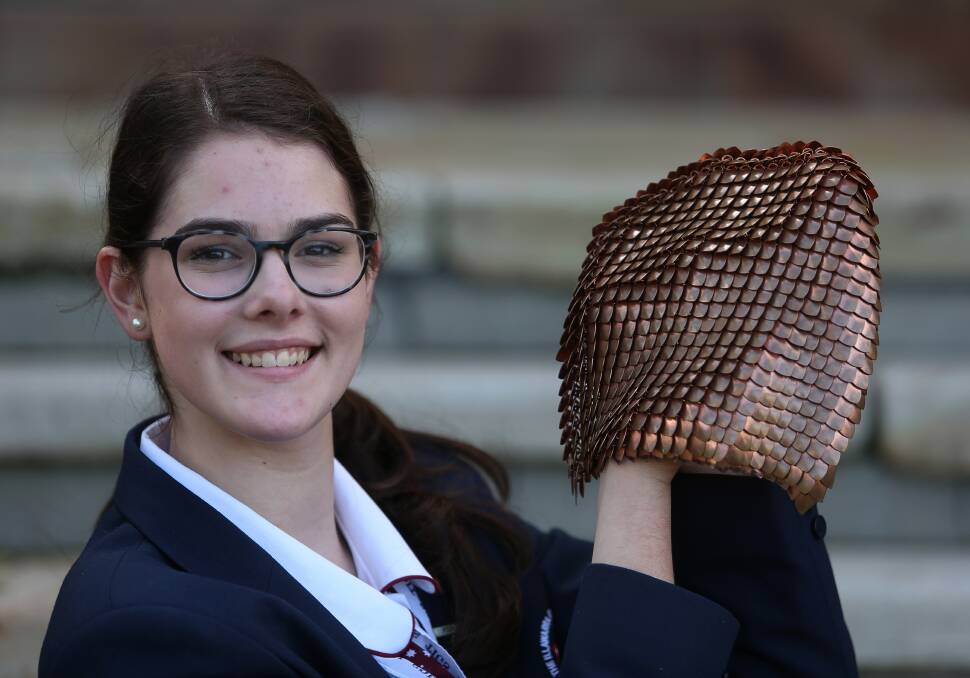
A 16 year-old girl from Mangerton is fast proving to be a rising star in the male-dominated world of science.
Subscribe now for unlimited access.
or signup to continue reading
In the process Macinley Butson is also helping breast cancer patients.
And, to top it all off she has made history by becoming the first Australian to win a top prize in the prestigious INTEL International Science and Engineering Fair 2017.
The Illawarra Grammar School (TIGS) year 11 student was named First Award winner in the Translational Medical Science category.
Macinley’s win is the first by an Australian in the competition’s 50-year history. The INTEL ISEF is considered the world's largest international science competition.
More than seven million high school students globally develop original research projects with the hope of making it to the annual fair held in Los Angeles.
Judges were particularly impressed with Macinley’s ‘Smart Armour’ project which looks at improving outcomes for radiotherapy breast cancer patients.
Macinley said she was ‘’inspired’’ to develop the project after seeing the ‘’traumatising’’ effect radiation therapy has on patients.
‘’The fact that one in 14 women who undergo radiation breast cancer treatment will actually develop a second primary cancer in the breast that’s not being treated as a byproduct...really sparked the interest for me,’’ she said.
‘’It is such an issue for these women who have cancer at the moment. They’re undergoing treatment but have the thought that because of this treatment they may be developing another cancer.
‘’My father works in radiation therapy and I do see patients who undergo this and it is a very traumatising and it is an experience that no one should have to go through really.’’
Macinley said ‘Smart Armour’ works through the use of copper as a shielding property.
‘’A lot of scientific testing has shown that copper is 20 per cent more effective than aluminium and lead,’’ she said.
‘’Smart Armour is able to block about 80 per cent of the harmful radiation that reaches the non-treated breast. A hospital in Sydney is just going through relevant paperwork to actually have clinical trials for the device, which is very exciting.’’

